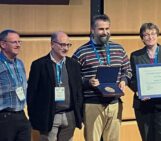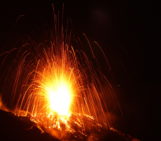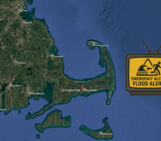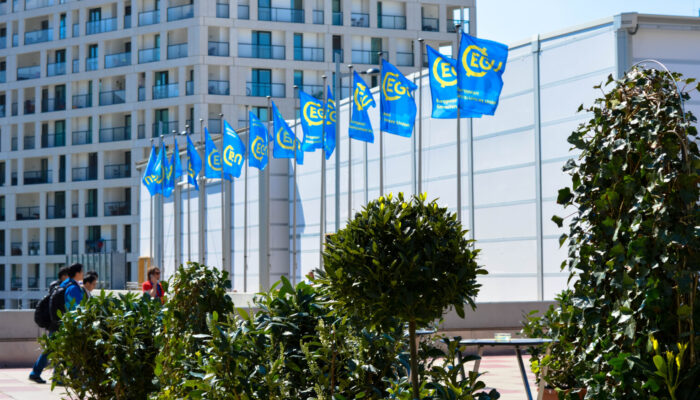
The EGU 2025 General Assembly, scheduled from 27 April to 2 May 2025 in Vienna, Austria, is one of the most anticipated events in the geosciences field. This year’s assembly is expected to gather thousands of scientists from across the globe, offering an unparalleled opportunity to engage with the latest research, innovations, and trends in Earth, planetary, and space sciences. Whether you’re a student, researcher, or industry professional, the EGU General Assembly 2025 promises to be a unique and enriching experience. Let’s take a closer look at why you should be excited about this incredible event.
What is EGU 2025?
The European Geosciences Union (EGU) hosts its annual General Assembly, and in 2025, it will once again be a meeting ground for experts in various fields, including climate science, geophysics, geology, hydrology, space science, and more. This global event allows geoscientists of all levels to share research findings, engage in scientific discussions, and collaborate on addressing some of the world’s most pressing challenges, such as climate change, natural disasters, and environmental sustainability.
Why Should You Attend EGU 2025?
- Cutting-Edge Research and Discoveries
The EGU General Assembly is renowned for presenting the latest in geoscientific research. From Earth systems modelling to planetary exploration, this event showcases pioneering studies shaping geoscience’s future. Attendees can expect to see presentations on the most pressing topics in the field and gain insights into how geoscientists tackle global challenges. - Networking and Collaboration
One of the key benefits of attending EGU 2025 is the opportunity to network with experts from around the world. Whether you are looking to collaborate on a research project, seek career advice, or engage in meaningful conversations with peers and mentors, this event is a prime space for professional growth and relationship-building. With thousands of scientists from different backgrounds, the possibilities for collaboration are endless. - Career Development and Mentorship
For early-career researchers, EGU 2025 offers an invaluable chance to connect with potential mentors and industry leaders. Many participants look to hire, collaborate, or guide young researchers, making this an excellent opportunity for those looking to advance their careers in geosciences. - Interactive Sessions and Workshops
EGU 2025 will feature various interactive sessions and workshops, allowing attendees to engage deeply with specific topics and hands-on activities. These formats foster lively discussion, allowing participants to present their ideas, provide feedback, and learn from others. - Hybrid Participation
The 2025 edition of the EGU General Assembly will offer in-person and virtual participation, ensuring that researchers from all corners of the world can be part of the experience. This hybrid format makes connecting with the global geoscientific community easier than ever. - Public Outreach and Education
EGU 2025 also emphasises the importance of science communication. Many sessions will focus on public outreach, discussing how geoscientific research can be communicated effectively to a broader audience. This is an excellent opportunity for those interested in communicating science to gain insight into best practices and innovative methods for reaching non-specialist audiences.
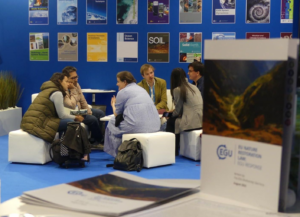
EGU23 – Science for policy helpdesk (image credit: Hazel Gibson, distributed via imaggeo.egu.eu)
Key Themes of EGU 2025
- Climate Change and Sustainability
In the face of a rapidly changing climate, many sessions at EGU 2025 will focus on understanding and addressing the impacts of climate change. Discussions will explore solutions to reduce environmental risks and foster sustainable practices in geoscience research. A detailed overview of these climate-focused sessions can be found in the EGU25 Climate: Past, Present & Future session programme. - Natural Hazards
With natural disasters occurring more frequently, EGU 2025 will feature sessions on predicting, managing, and mitigating natural hazards such as earthquakes, floods, and wildfires. Researchers will present the latest advancements in hazard modelling and risk assessment. A key area of focus will be NH4, which features several sessions on earthquake risk assessment and modelling. - Planetary Science and Exploration
Exploring other planets remains one of the most exciting frontiers in science. EGU 2025 will include sessions on planetary geophysics, astrogeology, and space exploration, bringing together researchers studying planetary bodies beyond Earth. Notable sessions include PS1.5, which shares the scientific discoveries of China’s Lunar and Deep Space exploration program. More information on other sessions can be found here. - Innovations in Geoscience Technology
Technology continues to revolutionise the way geoscientists conduct their research. Expect to see sessions on the latest advancements in remote sensing, data science, AI in geoscience, and other cutting-edge tools and techniques. The NH6 session explores how advanced technologies improve the monitoring, analysis and management of natural hazards.
Browse the EGU 2025 Session Programme
To help you navigate the diverse scientific topics and find the sessions most relevant to your interests, the EGU 2025 session programme is now available. The programme allows attendees to select from a wide array of Union-wide and Community-led sessions, covering areas such as Atmospheric Sciences, Climate, Geophysics, and more. Explore these sessions and start planning your schedule by visiting the EGU 2025 Session Programme here.
Looking Ahead
The EGU 2025 General Assembly is more than just a conference; it’s an opportunity to shape the future of geoscience. It’s a chance to collaborate, innovate, and discuss the planet’s most pressing issues today. With a mix of high-level presentations, hands-on workshops, and networking opportunities, this event is a must-attend for anyone passionate about geosciences.
If you plan to attend, get ready for an unforgettable experience in Vienna or virtually from anywhere in the world!
Post edited by Mina Voskaki and Paulo Hader.


